MSB sale fallout, goes at K9.5 billion
While Malawians awaited President Peter Mutharika’s consultative report and his decision on whether or not to sell Malawi Savings Bank (MSB), government yesterday abruptly signed off sale deals that included disposal of its shareholding majority in the institution it hitherto owned wholly.
In an impromptu signing ceremony at the Ministry of Finance, Economic Planning and Development Headquarters in Lilongwe, government gave up 75 percent of its stake in MSB for K9.5 billion ($21.1 million) to FDH Holdings Ltd (FDH Bank).
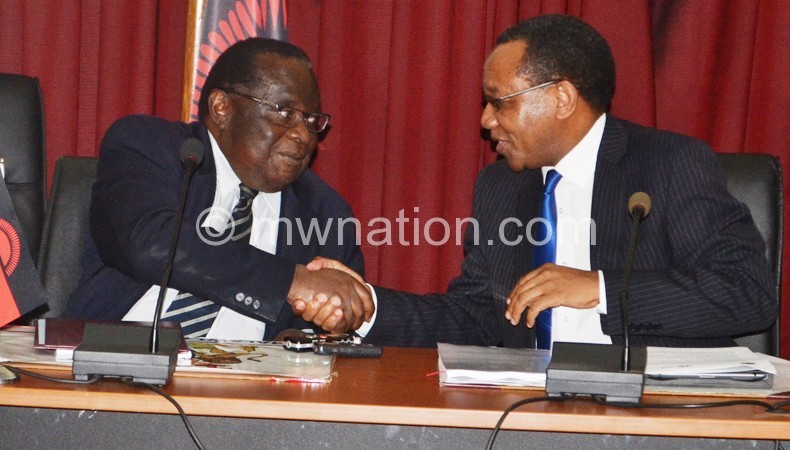

In another less publicized transaction, National Bank of Malawi (NBM) picked up a majority interest in Indebank at a K6.7 billion ($14.9 million) price tag.
It was not immediately clear on Thursday how much percentage interest the Indebank amount represents, but the Public Private Partnership Commission (PPPC) indicated in earlier statements that the then preferred bidder, NBM, would take up a percentage of between 51 and 75.
But the PPPC’s sure mandate on the transaction largely entailed selling the 41.38 percent that government directly owns in Indebank and the 25.2 percent it controls through Admarc Investment Holdings—which culminates to 67 percent.
Of the remainder, Press Trust—which controls NBM’s majority shareholder Press Corporation Limited (PCL)—holds 30 percent while 2.95 percent belongs to the bank’s employees.
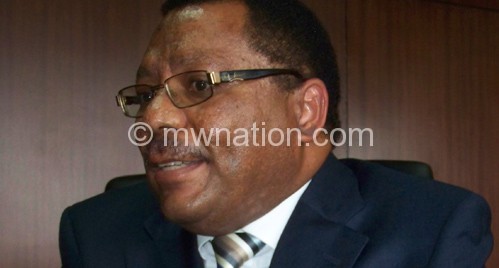
FDH Bank chairperson Thom Mpinganjira put pen to paper in the MSB deal and National Bank of Malawi chief executive officer George Partridge signed for the acquisition of Indebank as the government broker, the commission’s chief executive officer Jimmy Lipunga and officials from the Ministry of Finance looked on.
Of the remaining 25 percent of MSB shares, five percent is earmarked for the bank’s employees while government has retained 20 percent, which could be floated to the public through an initial public offering (IPO) on the Malawi Stock Exchange if the bank can churn out profits over the next three years as listing requirements dictate.
“This is a momentous day for Malawi. This will leave the government outside the banking business and commercial activity in the country,” bellowed Minister of Finance, Economic Planning and Development Goodall Gondwe about the controversial deals.
But the official signing ceremony did not go down well with MPs two kilometres away as debate heated up in Parliament in the afternoon with members of the opposition benches calling for Gondwe’s resignation and, by extension, President Mutharika’s head, for flouting parliamentary recommendations.
Leader of opposition Lazarus Chakwera said government’s move to disregard Parliament’s decision was an indication to Malawians that the Executive had no respect for other arms of government.
Civil society member Billy Mayaya, who Gondwe claimed supported the sale, in an interview after the announcement, denied recommending the sale of the bank, describing the move as a flagrant disregard of Parliament’s powers and an insult to Malawians opposed to the sale.
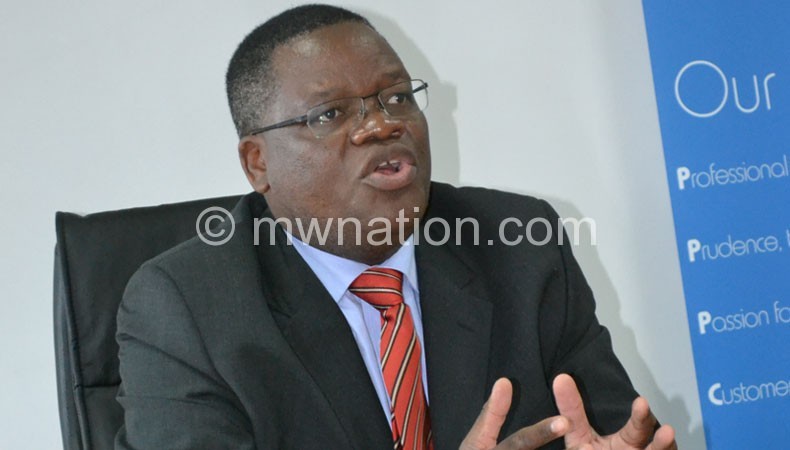
On his part, democracy and governance commentator Chris Chisoni described government’s decision “to sell the bank behind Malawians’ backs” as a betrayal to aspirations of democracy.
“The sale was suspended awaiting consultations and Malawians were waiting for a concluding statement. This sets the tone that the Executive makes all decisions, but just use structures like Parliament.”
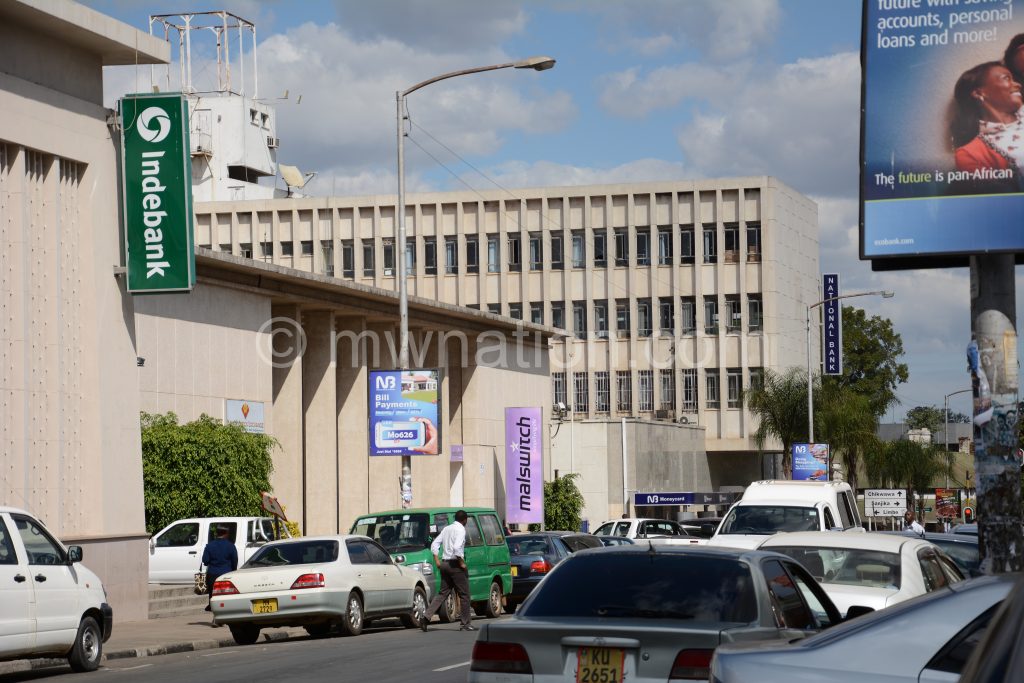
He urged Parliament to take whatever action necessary to be heard, especially on the sale of MSB.
Speaking at the event, FDH chairperson and chief executive officer Mpinganjira said his bank has no intention of closing down non-profitable branches of MSB, adding this assurance is contained in the 200-paged bidding document which forms part of the divesture agreement.
“MSB will not shut down for a minute, even for a day. All people working will continue to be working. What we want is that the business of MSB should be brought back to normal and it should meet the requirements of the Registrar of Banks. In three years’ time, some of the shares of the bank will be listed on [MSE]. We will do our best to preserve the national asset, it is not in vain that government has entrusted us with this bank,” he said.
In selling MSB, government has gone against recommendations of the Budget and Finance Committee of Parliament whose resolution, adopted on Wednesday, was that government should recapitalise the bank to enable it meet regulatory requirements.
The sale has also come at a time Malawians remain in the dark about the resolutions of the government driven consultations, which took place two weeks ago in Lilongwe.
But a defensive Gondwe said Parliament did not adopt or debate the committee report, but just noted it as the Speaker had asked in his question to the House. He also said the President made a decision to go ahead with the sale after “spirited discussions”, but the concept of the sale received no opposition.
He also denied that government has cheated Malawians by using the consultations as a gimmick to force the passing of the 2015/16 budget, which the opposition threatened to reject if the sale of MSB proceeded.
Gondwe challenged that government was ready to meet the committee in court and put their case forward if Parliament seeks legal redress.
“If we were afraid, we would not be here. I have said it many times, as government; we feel it is important that the bank should be in the hands of those who are in banking. It should not be in the hands of politicians,” Gondwe said.
On June 3, Mutharika suspended the sale of MSB to allow for more consultations.
Mutharika at the time said the problems being faced by MSB go back several years and that the decision to dispose of government’s controlling interest in MSB was made in 2013.
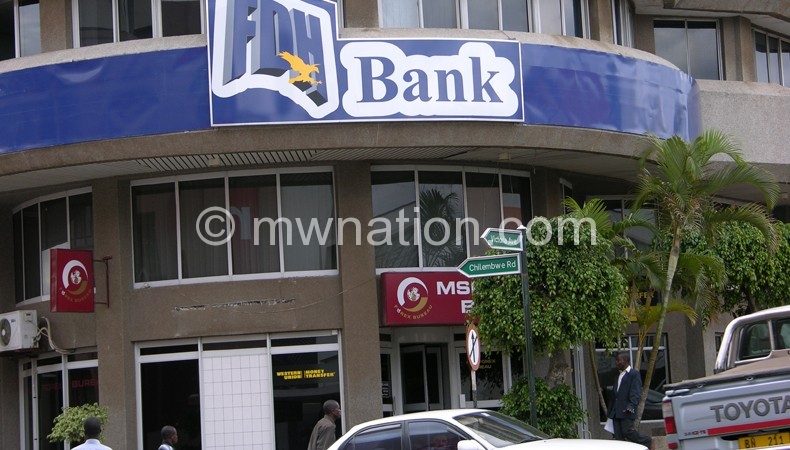
Mutharika said government’s position on the MSB saga was supported by the Institute of Chartered Accountants in Malawi (Icam), the private sector, the Reserve Bank of Malawi (RBM) as well as the donor community, including the International Monetary Fund (IMF).
Terms of the sale
While the nitty-gritty of the sale remain under wraps for now, Ministry of Finance and PPPC has disclosed that FDH Holdings have bought MSB at the purchase price of K5.4 billion ($12 million) for the shares, K3.2 billion ($7.1 million) as capital subscription for Basel II requirements and K900 million in information communication technology (ICT) investments.
An independent valuation by Economics Association of Malawi and Professor Ben Kaluwa of the University of Malawi’s Chancellor College put the bank’s value at K4.5 billion, excluding toxic assets, according to Treasury.
FDH Bank takes over 14 branches, 34 agencies and 41 automated teller machines (ATMs), apart from 588 employees spread across the country.
Toxic assets
According to the agreement, which Mpinganjira confirmed, FDH Holdings will not take over the toxic assets that contributed to MSB’s failure to meet its requirements with the registrar.
Parliament’s shock
Meanwhile, the Budget and Finance Committee, which thought it had won the fight to stop the sale of MSB, was shocked to learn that the signing ceremony was underway while Parliament was meeting less than two kilometres away.
Chairperson of the committee Rhino Chiphiko said the committee would meet to ponder whether to challenge the sale in court.
“How can he say [Gondwe] we agreed to the sale of the bank? We have always resisted the sale. Parliament on Wednesday decided the bank should not be sold, that it should be recapitalised then offered to the public to buy shares,” Chiphiko insisted.





